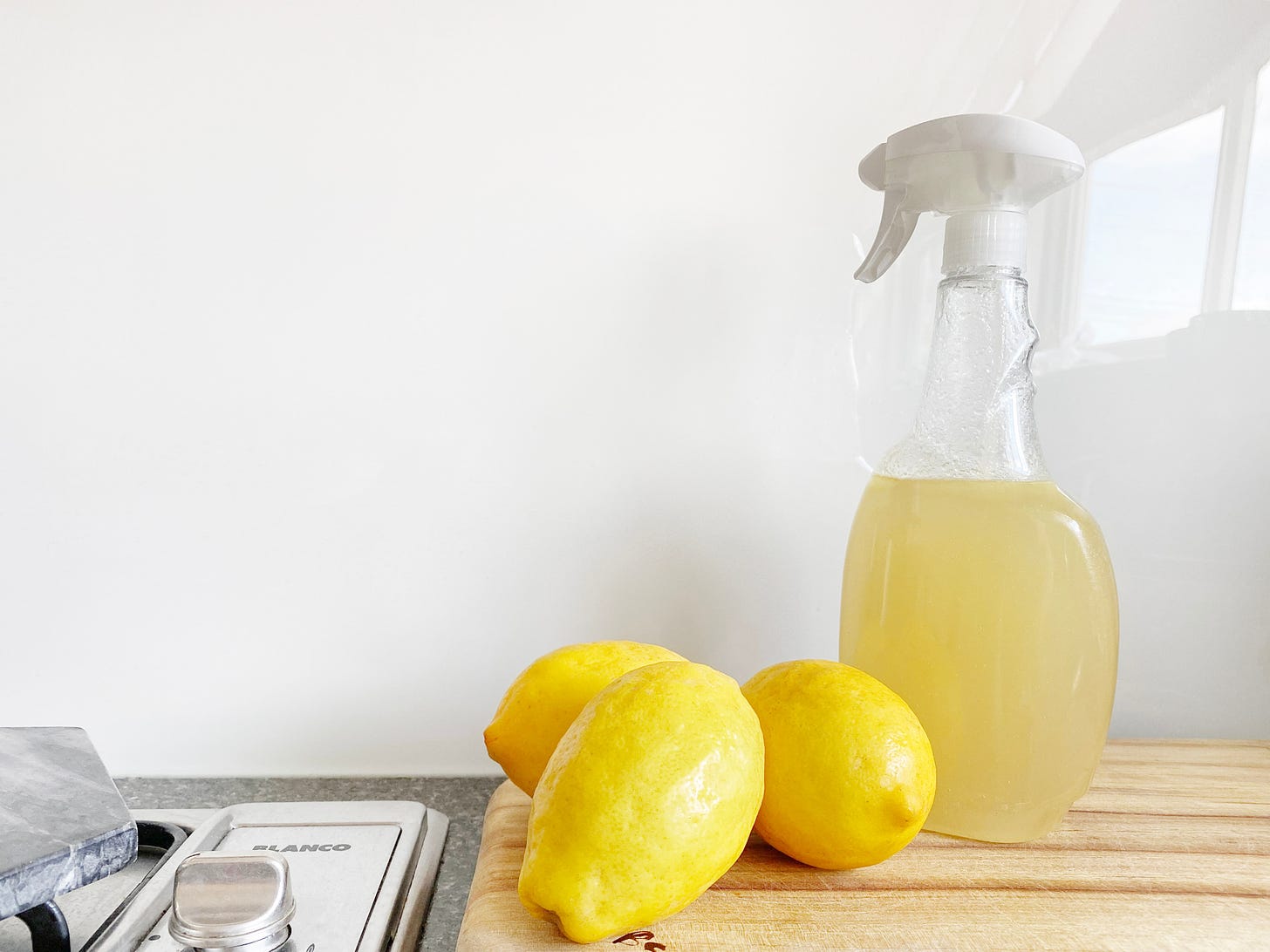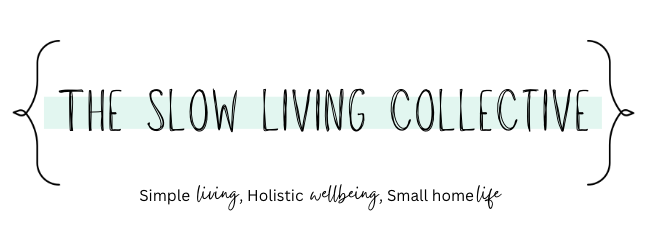Learn How to Navigate the World of Low Toxic Living Without Feeling Overwhelmed or Stressed Out.
Podcast Episode 40 – Avoiding the overwhelm of low toxic living with Kay from A little less toxic. Kay and I talk about why we decided to switch to low toxic living, and what lead each of us to this way of living. Kay is passionate about living a low toxic life and inspire others to know that it doesn’t have to be all or nothing, or overwhelming to get started. Find the episode by searching for The Slow Living Collective wherever you get your podcasts.
Apple Podcasts | Spotify Podcasts
Living in today’s world means being exposed to all sorts of toxins, from the food we eat to the products we use to the air we breathe. Many of these toxins are harmful to our health, and can lead to a variety of health issues, from allergies to cancer. That’s why more and more people are turning to low toxic living, a lifestyle that focuses on reducing exposure to harmful chemicals and pollutants. In this blog post and podcast episode, we’ll explore the benefits of low toxic living, and how you can incorporate it into your own life.
What is Low Toxic Living?
Low toxic living, also known as low-tox living or non-toxic living, is a lifestyle that prioritizes reducing exposure to toxins and chemicals that can harm our health. It’s not about eliminating all toxins from our lives, which is impossible, but rather minimizing exposure to the most harmful ones. This can involve making changes in everything from the food we eat to the products we use to the air we breathe.

Benefits of Low Toxic Living
Better Health
Perhaps the most obvious benefit of low toxic living is better health. By reducing exposure to harmful chemicals and pollutants, we can reduce the risk of developing a variety of health issues, from allergies to cancer. Low toxic living is all about reducing the toxic load on our bodies and living spaces. This means being mindful of the products we use in our homes, the food we eat, and the air we breathe. By making conscious choices to reduce exposure to toxins, we can improve our overall health and well-being. Exposure to toxins can have a negative impact on our immune system, hormone balance, and other bodily functions. By embracing a low toxic living lifestyle, we can support our bodies in functioning optimally and improve our quality of life.
More Energy
Toxins can sap our energy and make us feel tired and sluggish. By reducing exposure to these toxins, we can feel more energized and vibrant. Low toxic living can also have a positive impact on our energy levels. When we reduce our exposure to toxins, our bodies don’t have to work as hard to detoxify and eliminate them. This can free up energy that can be used for other bodily processes, such as digestion and cell repair. By choosing low toxic products and foods, we can support our bodies in functioning more efficiently, which can result in increased energy levels and a greater sense of vitality. Additionally, by reducing exposure to toxins in our homes, such as air pollutants and electromagnetic radiation, we can improve the quality of our sleep, which can also lead to increased energy levels during the day.
Improved Sleep
Toxins can disrupt our sleep, leading to insomnia and other sleep issues. By reducing exposure to these toxins, we can improve our sleep quality and wake up feeling more rested. Low toxic living can positively impact the quality of our sleep. Toxins found in common household products and in our environment can disrupt our sleep patterns and make it difficult to get a good night’s rest. By choosing low toxic options for our bedding, cleaning products, and air purifiers, we can improve the quality of the air we breathe and reduce exposure to harmful chemicals that can disrupt our sleep. Additionally, by making conscious food choices and reducing our intake of processed and packaged foods, we can support our bodies in functioning optimally and improve our overall health, which can also contribute to better sleep. By prioritizing a low toxic living lifestyle, we can create a restful and rejuvenating environment that promotes better sleep and a greater sense of well-being.
Better Mood
Chemicals and pollutants can affect our mood, leading to irritability, anxiety, and depression. By reducing exposure to these toxins, we can feel more balanced and emotionally stable. Low toxic living can also positively impact our mood and emotional well-being. Exposure to toxins can have a negative impact on our brain function and mental health. By reducing exposure to toxic chemicals in our home and environment, we can support our bodies in functioning optimally, which can improve our mental clarity and emotional balance. Additionally, by choosing low toxic food options, we can support our gut health, which is directly linked to our mood and overall emotional well-being. Prioritizing a low toxic living lifestyle can help to create a more peaceful and harmonious environment, which can promote a greater sense of calm and happiness.

Environmentally Friendly
Low toxic living is also better for the environment. By reducing the use of harmful chemicals and pollutants, we can help protect the planet and its resources. Low toxic living not only benefits our health and well-being, but it can also have a positive impact on the environment. By choosing low toxic products, we can reduce the amount of harmful chemicals that end up in our waterways and ecosystems. Additionally, by choosing organic and locally sourced foods, we can support sustainable farming practices and reduce our carbon footprint. By reducing the amount of waste we produce and choosing to recycle and compost, we can minimize our impact on the environment and contribute to a healthier planet. Prioritizing a low toxic living lifestyle can help to create a more sustainable future for ourselves and generations to come.
How to Incorporate Low Toxic Living into Your Life
- Choose Organic: Opt for organic fruits and vegetables, which are grown without the use of pesticides and other harmful chemicals.
- Read Labels: Read the labels of the products you use, from cleaning supplies to personal care products, and avoid those that contain harmful chemicals.
- Avoid Plastics: Plastics can leach harmful chemicals into our food and water. Try to avoid using plastic containers, and opt for glass or stainless steel instead.
- Use Natural Cleaning Products: Many cleaning products contain harmful chemicals. Use natural alternatives, like vinegar and baking soda, to clean your home.
- Purify Your Air: The air inside our homes can be more polluted than the air outside. Use air purifiers or plants to help purify the air and reduce exposure to harmful pollutants.
How to live a low toxic lifestyle with your food choices
One of the key ways to live a low toxic lifestyle is to make conscious food choices. This includes choosing whole, organic, and locally sourced foods whenever possible. By avoiding processed and packaged foods, we can reduce our intake of harmful additives, preservatives, and chemicals. It’s also important to choose meats and dairy products that are raised without the use of antibiotics or hormones. When cooking, opt for non-toxic cookware and avoid using plastic containers, which can leach harmful chemicals into our food. Additionally, be mindful of the cleaning products and pesticides used on fruits and vegetables and opt for natural and organic options whenever possible. By making these simple food choices, we can support our bodies in functioning optimally and reduce exposure to harmful toxins.

Why we avoid seed oils
Seed oils, also known as vegetable oils, have become a popular choice in modern diets due to their low cost and availability. However, they have been shown to be highly processed and contain high levels of polyunsaturated fats, which can be harmful to our health. When these oils are heated during the cooking process, they can produce harmful compounds known as advanced glycation end products (AGEs), which have been linked to inflammation, oxidative stress, and chronic disease. Additionally, seed oils are often extracted using chemicals such as hexane, which can leave behind toxic residues. It’s important to opt for healthier fats such as coconut oil, olive oil, and avocado oil when cooking and avoid using seed oils whenever possible. By making this simple change, we can support our health and reduce our exposure to harmful toxins.
Start with one thing & don’t get overwhelmed
When it comes to low toxic living, it’s important to remember that it’s a journey, not a destination. Trying to change everything at once can be overwhelming and unsustainable, leading to burnout and frustration. Instead, start by choosing one thing at a time to focus on and gradually incorporating it into your daily routine. This could be something as simple as switching to natural cleaning products or opting for organic produce. Once you’ve made one change, you can move on to the next. It’s also important to remember that everyone’s journey to low toxic living will be different, and that’s okay. There’s no one-size-fits-all approach, and what works for one person may not work for another. By starting small and taking it one step at a time, you can create lasting habits and make low toxic living a sustainable part of your life. If you’re interested in incorporating low toxic living into your own life, start by making small changes and see how they impact your health and well-being.
